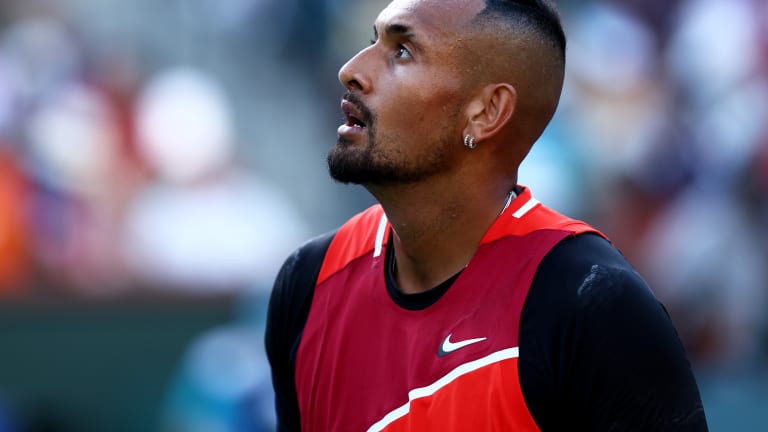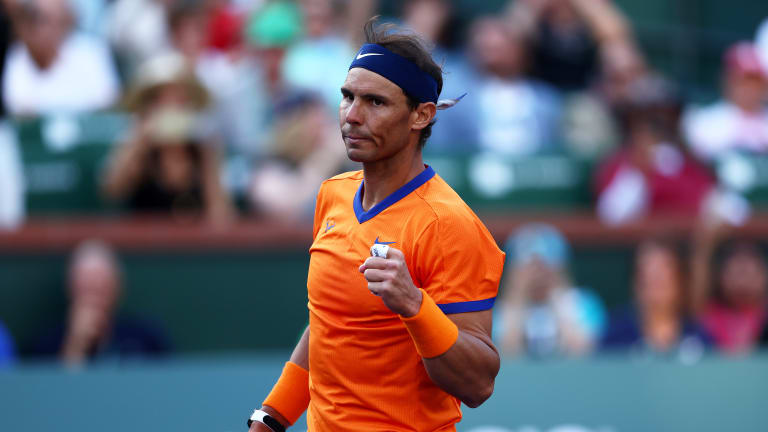Indian Wells, USA
In close quarterfinal loss to Rafael Nadal, Nick Kyrgios—yet again—competes and complicates
By Mar 18, 2022Indian Wells, USA
Mackenzie McDonald is paying the college tennis experience forward with a new fund
By Mar 17, 2025Indian Wells, USA
Mirra Andreeva and Jack Draper win breakthrough titles at Indian Wells: What did we just witness?
By Mar 17, 2025Indian Wells, USA
Jack Draper's run through Indian Wells concludes with his first ATP Masters 1000 title
By Mar 16, 2025Indian Wells, USA
Holger Rune vs. Jack Draper: Where to Watch, Indian Wells Preview, Betting Odds
By Mar 16, 2025Indian Wells, USA
Holger Rune reaches first Indian Wells final over Daniil Medvedev
By Mar 15, 2025Indian Wells, USA
Mirra Andreeva vs. Aryna Sabalenka: Where to Watch, Indian Wells Preview, Betting Odds
By Mar 15, 2025Indian Wells, USA
Mirra Andreeva, 17, advances to Indian Wells final, beating Iga Swiatek in chilly conditions
By Mar 15, 2025Indian Wells, USA
Ruthless Aryna Sabalenka storms past Madison Keys, 6-0, 6-1, in semifinals of Indian Wells
By Mar 15, 2025Indian Wells, USA
Carlos Alcaraz vs. Jack Draper: Where to Watch, Indian Wells Preview, Betting Odds
By Mar 15, 2025In close quarterfinal loss to Rafael Nadal, Nick Kyrgios—yet again—competes and complicates
"I played three bloody good matches," said the Aussie, "And everyone will just remember that time where Kyrgios lost to Rafa at Indian Wells or the time that he threw the racquet."
Published Mar 18, 2022
Advertising
Advertising

"Just because I have an outburst doesn't mean I'm not focused," insisted Kyrgios.
© Getty Images
Advertising

"You can be sad, you can be very upset, but if that helps you to play better or to win more, do it," said Nadal. "But it's not my case."
© Getty Images
Advertising

Download the Tennis.com app on your IOS or Android device today!